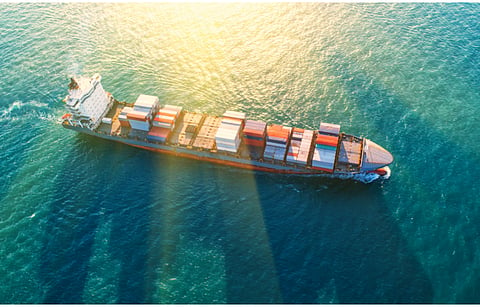

Political support is forthcoming for the US solar development industry as 22 Senators have appealed to President Joe Biden to reject the request of Auxin Solar for retroactive tariffs on Vietnam, Thailand, Malaysia and Cambodia that supply over more than 80% crystalline silicon solar panels to the nation.
They want the administration to look at the situation practically as they point out that the current demand for solar in the country far exceeds the existing domestic production capacity. The Department of Commerce (DOC) is expected to deliver its preliminary determination in August 2022, but the Senators are asking for the same to be expedited.
Signatories of the letter claim the investigation by DOC is already leading to cancellation or delays to the existing pipeline of projects citing Wood Mackenzie's estimate of around 16 GW annual drop in planned installations with the current situation persisting and tariffs eventually imposed.
"Initiation of the investigation is already negatively impacting the US solar industry, and the longer this situation persists, the more acute the damage will be. Accordingly, we strongly urge your administration to make an expedited preliminary determination in this matter and carefully consider the significant policy ramifications on American businesses, workers, and ratepayers," reads the letter.
Recently, the Solar Energy Industries Association (SEIA) shared updated results of its survey on the impacts of Auxin Solar petition. It expects 24 GW of planned capacity loss in the country by 2023 due to the same (see SEIA Cuts US Solar Forecast For Next 2 Years By 46 (Percent)).
For a quick background: it all started when a lesser-known solar module manufacturer from the US, Auxin Solar moved the DOC to conduct an investigation into anti-circumvention charges levelled against the 4 Southeast Asian nations for their solar imports into the country. If imposed, the tariffs can range between 50% to 250%.
Developments are dynamic in the matter as every other day there is something happening.
On May 2, 2022 the DOC issued a memorandum, available on American Clean Power's website that specifies, "Wafers produced outside of China with polysilicon sourced from China are not subject to these circumvention inquiries."
Philip Shen of Roth Capital Partners points out that this highlights a 'potential path' for JinkoSolar's 7 GW wafer facility in Vietnam to sidestep the anti-circumvention process, and could also benefit Maxeon Solar Technologies that sources wafers from outside of China, and JA Solar that's also producing 1.5 GW wafers annually in Vietnam.
As DOC has sought inputs from stakeholders regarding potential certification requirements and practicality of such a process, Shen points out that if it requires mandatory respondents then the process will take longer to complete. He explains, "If DOC does not, then there is a chance DOC comes to an earlier decision. Our checks today suggest DOC process ultimately runs its full course with the preliminary determination deadline of August 30 and final determination letter due on January 27, 2023."
Roth analysts also warn of trouble brewing with the Uyghur Forced Labor Prevention Act (UFLPA) as companies buying Xinjiang originated poly for non-US shipments may be 'restricted' from shipping 'clean' product to the US. "This could be yet another wrinkle on the already challenged US module supply. Recall: Implementation of the UFLPA law is around the corner and still expected by the end of June," it added.
The UFLPA is being brought in by the US government to prevent goods manufactured in China's Xinjiang region from entering the country (see US Forced Labor Prevention Act).
